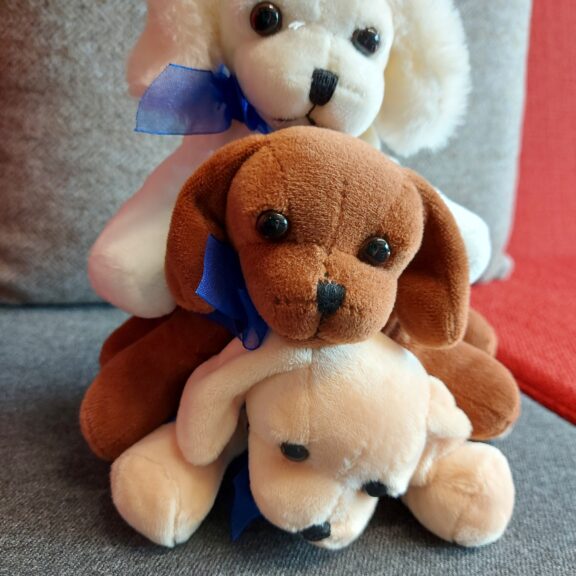Resources
Family and friends have significant roles as members of the care team when someone they love lives with MND (Motor Neurone Disease), and we recognise that you might need extra support and information to help you through this time. The aim of this online toolkit for carers is to direct you to resources that may be available to you.

Understanding Motor Neurone Disease (MND) is an important first step when someone you know receives a diagnosis. As a family member, friend or carer this online toolkit has been developed to help you seek out the information, advice, and support that you want, when you want it.
MNDSA (Motor Neurone Disease Association of South Australia) provides care and support to South Australian’s living with MND through a range of programs and staff to support people living with MND, their family, friends, carers, and health professionals.
Click here to watch short introductory video What is MND?

Supporting the needs of someone with MND can be complex. This toolkit is designed to help you find the information you need when you need it. You might also ask your MND Advisor or Support Coordinator to help you put together a list of useful contacts (e.g., GP (General Practitioner), MND Clinic, Counsellor, Pharmacist, Carers SA, and other specialist services).

Caring for someone who has MND can be emotionally demanding. It is normal to feel grief, sadness, and fear. Counselling for carers is available through the Carer Gateway (1800 422 737). Your GP may also be able to arrange referrals under a Medicare subsidised mental health care plan if he/she feels your situation requires it. If you are in paid employment, your employer may offer support via an Employee Assistance Program (EAP).
MNDSA’s Listening and Support program offers clients and carers opportunities to talk about their feelings and gently explore ways to help build resilience and adjust to the significant impacts a diagnosis of MND may impose, now or in the future.
The Special Memories program – also known as life biography or memory making is a way of documenting a person’s story in their own words. It is by nature a deeply personal and spiritual process, and a powerful way to connect generations by documenting and leaving behind a rich legacy to family history for those you have loved and their children.
You, Me & MND social gatherings provide informal opportunities to meet with other people going through similar experiences in a relaxed environment. These sessions are held in venues across northern, central, and southern metropolitan Adelaide where people can gather and engage over refreshments and lunch. A member of the MNDSA team is in attendance to answer any questions about services and support. To find out when and where the next gatherings are being held, please click here.
Other Carer Resources
www.carerhelp.com.au has a suite of resources developed specifically to help inform carers on specific topics including a self-paced learning modules.
https://mndsapathway.com.au/ is an online tool to help everyone in the caring team (including health professionals of all disciplines and carers) to understand the MND journey and includes information about management of symptoms from pre-diagnosis to bereavement. The website has several resources including culturally adapted and translated information for Aboriginal and non-English speaking consumers and carers, short video interviews with MND specialists about breathing, respiratory care and ventilation, diet, nutrition, eating and drinking, swallowing and secretions management, gastrostomy and PEG feeding, and palliative care, end-of-life care and dying.
Looking after yourself is very important. This can be enhanced by social support, self awareness, self care, and connection to something larger than self. The Australian Red Cross Wellbeing Toolkit has been developed to assist with assessment of wellbeing and strategies for self care.

As MND progresses you may need to help the person living with MND with their personal care and activities of daily living. This means helping your relative or friend wash, get dressed, use the toilet, get in and out of bed, eating and drinking. You may feel the need to have experienced help with some of these activities.
You may be eligible to access Australian Government financial support for services to help you manage at home. MND Connect lists the following categories of support. Access to government-funded assistance depends on a lot of factors. Some people self-fund this help at home through private service providers. The services listed here may or may not apply to your individual situation, so please refer directly to the websites and phone numbers listed for more detailed information about eligibility. The list is not exhaustive. Engage with your MND Advisor or Support Coordinator for information about local services.
- domestic support
- home maintenance
- home modifications
- transport
- personal care
- respite care
- social support
- government financial support for services.
At times equipment can make things easier for the person you are caring for as well as yourself. Talk with your MNDSA Occupational Therapist about what items can be provided by the Equipment Service.
Respite is a term used to describe a break from caring. Respite can be someone coming into your home, or it may refer to a short stay in a residential care facility or hospice to enable you to have a break for a few hours or a few days. Talk to your MNDSA support coordinator or advisor about how to access respite services.

Caring for a loved one with MND can create a range of financial, legal, and work matters that need attending to. You may be eligible for financial assistance or other benefits if you have MND or are caring for a person with MND. Visit Services Australia to find out if you are eligible. The Legal Services Commission is South Australia’s independent statutory authority and provides free legal information, advice, and education.
When Care at Home Becomes Difficult
There are several reasons why a person with MND may need care in hospital, hospice, or residential care facility. If this happens it is likely that admission to hospital, referral to a local palliative care service, or access to a residential care facility may be implemented. Your MNDSA support coordinator, GP or other health professional will support you at this time.

When you lose someone you love the emotions of grief may be powerful, perhaps overwhelming. Everyone deals with grief differently and according to their own time schedule. Some people may find it useful to talk with someone. The GP is a good place to start. GPs (General Practitioner) can provide you with information about grief. They can also do a brief assessment to see if you might benefit from working with a trained mental health professional such as a grief counsellor or psychologist.
Useful links to local grief support
SA Health
There are many high-quality online bereavement resources available to help you. The SA Health website lists a selection of them, alongside links to online and face-to-face services available to all South Australians.
GriefLink provides information for people who are dealing with grief caused by the death of someone close to them, and for those who are supporting them. The death of someone we know is something we all face at some time in our life, and grief is a normal reaction to this loss.
The Healing Centre for Griefology specialises in all things associated with the human experiences of loss and grief including death and dying.
Australian Centre for Grief and Bereavement provides support for bereaved and grieving Australians.
Disclaimer
Our Carer Toolkit webpage is designed to direct you to resources that may be available to you. These are suggested resources only that may assist you in your caring role. We encourage you to do your own due diligence to ensure services are right for you. Ask service providers how they can help, and what their fees and charges are.
While we try to update the information on our website, we cannot guarantee that the information is current or complete at any given time.
The information on this website is presented by MND South Australia (MNDSA) for the purpose of improving public access to information about motor neurone disease.
MNDSA monitors the quality of the information available on this website and updates the information regularly. However, MNDSA does not make any representation or warranty about the accuracy, reliability, currency, or completeness of any material or data contained on this website or on any linked website.
The information on this website does not replace any statutory requirements under any relevant Commonwealth, state, or territory legislation. MNDSA is not liable for any loss resulting from any action taken or reliance of any information or material contained on this website (including, without limitation, third party information).
MNDSA recommends that users exercise their own skill and care with respect to their use of this website. This website is not a substitute for independent professional advice. Users should obtain their own professional advice.
Links to other websites are inserted for convenience and do not constitute endorsement by MNDSA of material at those sites, or any associated organisation, product, or service.








